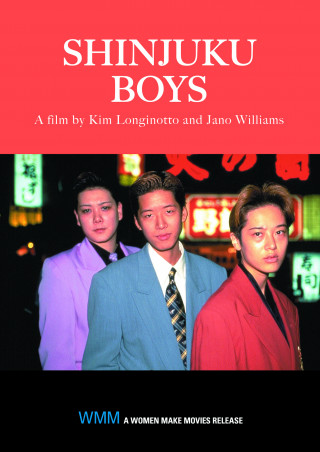Jano Williams
Jano Williams went to Japan in 1974 intending to stay one year and didn’t come home for 14. While there she worked at the Japanese Broadcasting Corporation NHK, her work involved the making of radio programs about the individuals and structures that make up Japanese society. She subsequently moved to the television company NTV. She learned Japanese and became totally immersed in the Japanese way of life and contributed many articles to Japanese newspapers and magazines. A year after her return to England she went back to Japan with Kim Longinotto to make EAT THE KIMONO (1990) about the radical woman performer Hanayagi Genshu. This was followed by DREAM GIRLS (1993) about the all women Takarazuka Dance Theatre and then SHINJUKU BOYS (1995) about young transsexual men who had been born with women’s bodies. Subsequently she went back to film in Japan for another production company in the course of which she first met the Gaea girls. She is now living in Bristol and hopes to continue making films about the Japan that reflect her bond with that country. (09/09)
Available Title(s):
Gaea Girls
A film by Jano Williams, 2000, 62 min, Color
"This fascinating film follows the physically grueling and mentally exhausting training regimen of several young wanna-be GAEA GIRLS, a group of Japanese women wrestlers. The idea of them may seem like a total oxymoron in a country where women are usually regarded as docile and subservient. However, in training and in the arena, the female…
Read More
Shinjuku Boys
A film by Jano Williams, 1995, 53 min, Color
This documentary from Kim Longinoto and Jano Williams (DREAM GIRLS), offers rich insight into gender and sexuality in Japan via a candid portrait of Kazuki, Tatsu, and Gaish, three trans masculine hosts working at the New Marilyn Club in Tokyo’s bustling Shinjuku district. As the film follows them at home and on the job, all…
Read MoreDream Girls
A film by Jano Williams, 1993, 50 min, Color
This fascinating documentary, produced for the BBC, opens a door into the spectacular world of the Takarazuka Revue, a highly successful musical theater company in Japan. Each year, thousands of girls apply to enter the male-run Takarazuka Music School. The few who are accepted endure years of a highly disciplined and reclusive existence before they…
Read More